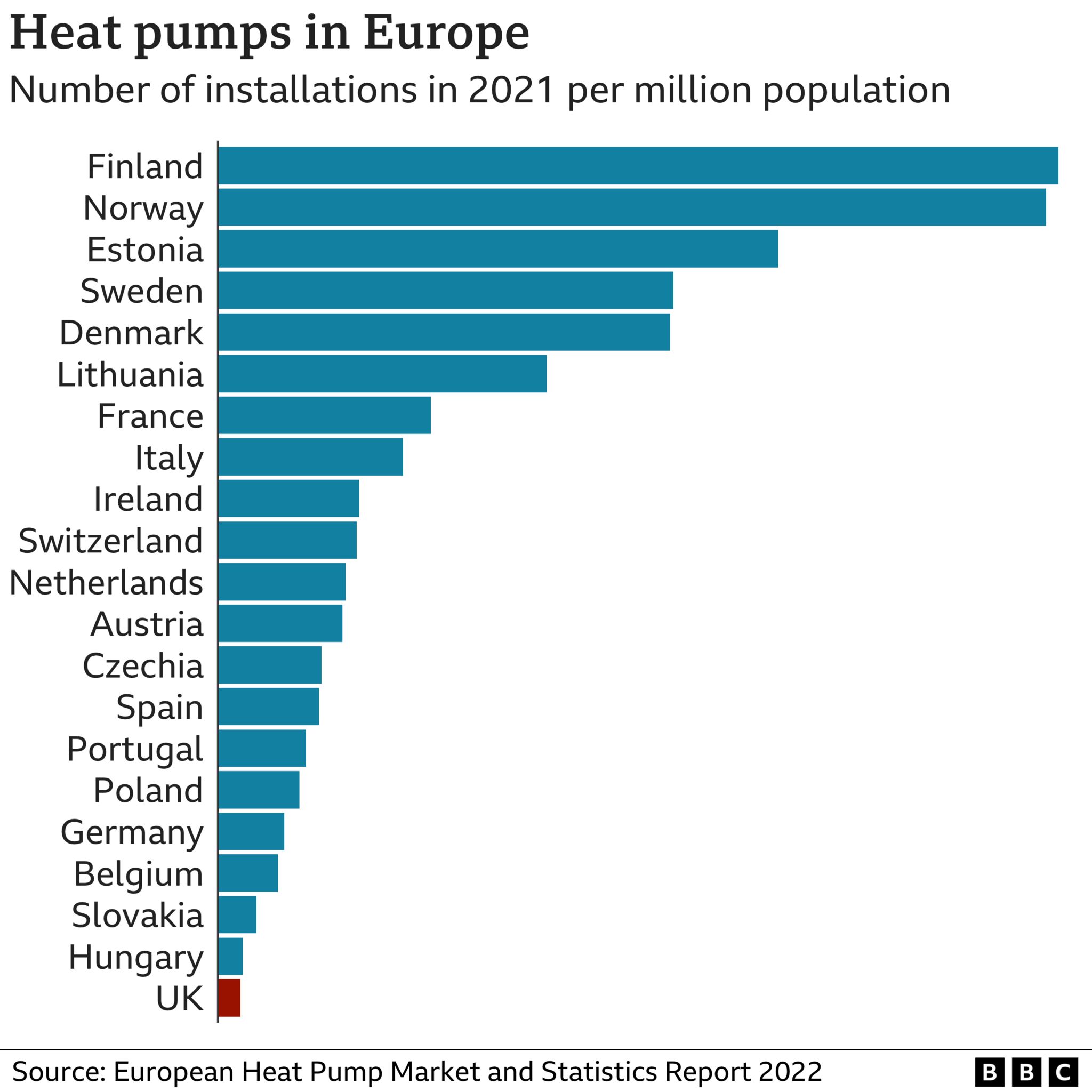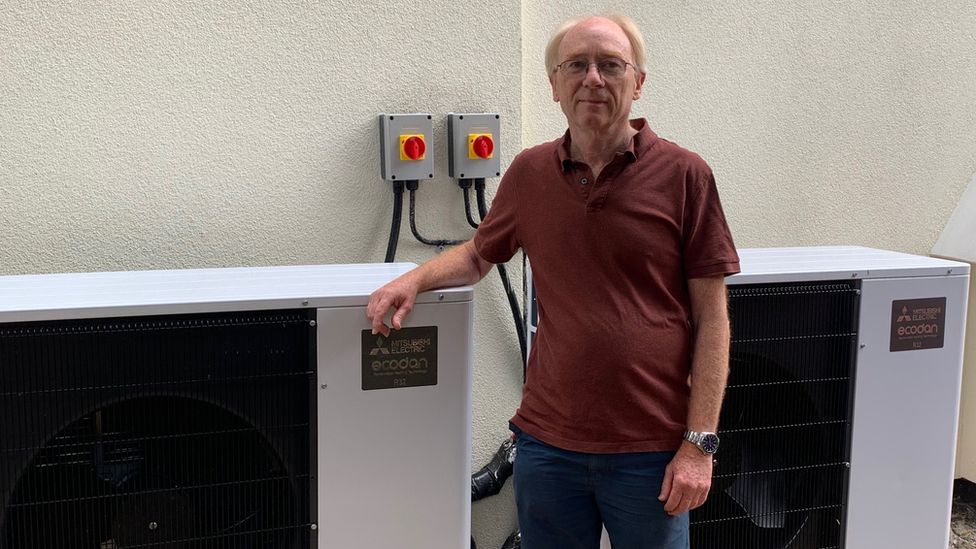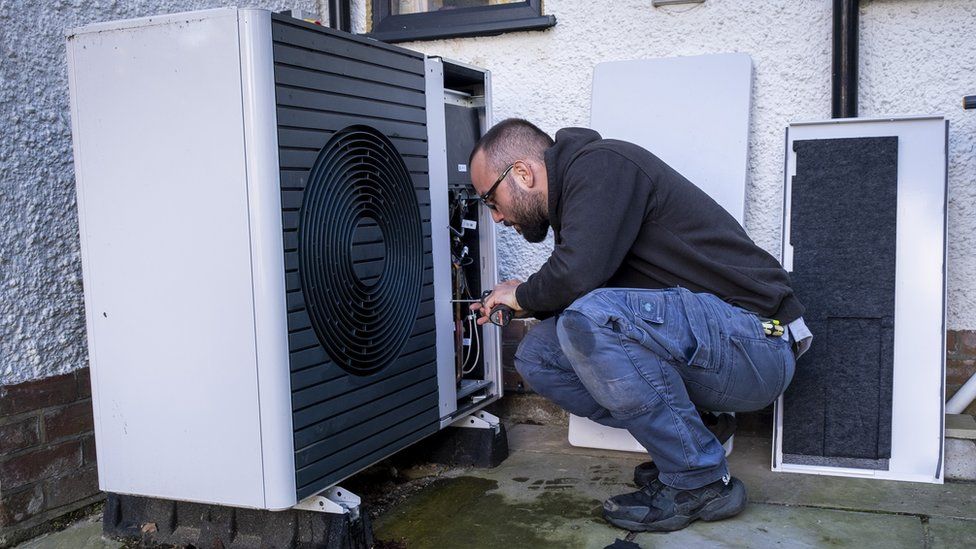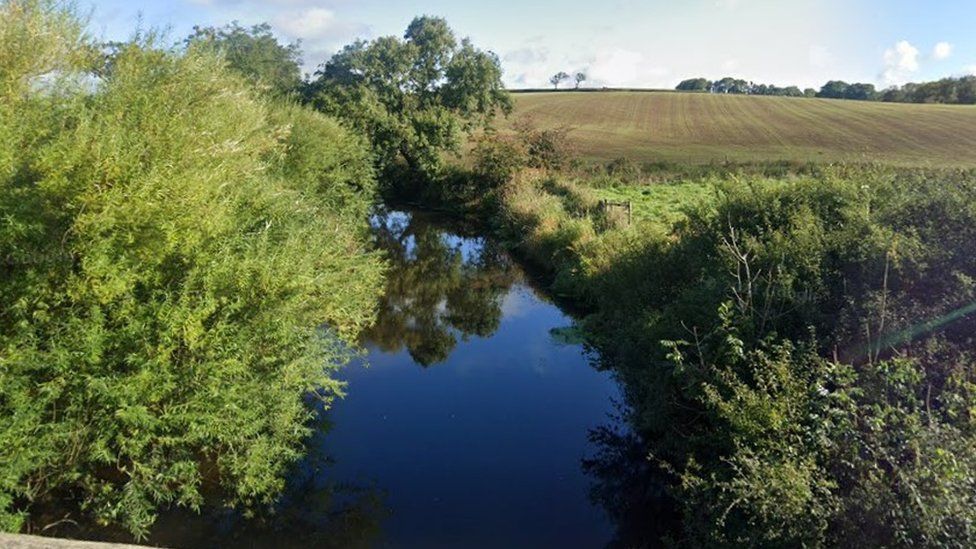The first year of a government initiative to make home heating more environmentally friendly hasn't gone well.
The Boiler Upgrade Scheme offers £5,000 grants to households to encourage them to switch from boilers to heat pumps, which burn much less carbon and thus warm the atmosphere.
It was only able to issue half of the 30,000 grants that it was supposed to in its first year in England and Wales.
The cost of properly insulating homes to prepare them for a heat pump, according to experts, and a shortage of installers are to blame.
In order for the UK to achieve net zero emissions by 2050—a goal that would prevent any additional greenhouse gases from entering the atmosphere—heat pumps are a crucial component. Currently, 14% of the UK's carbon emissions come from home heating.
The UK's climate watchdog said the government was "significantly off track" the day before the data was released on grants awarded since the program began in May 2022. The plan is in place until 2028.
High heat pump costs, a dearth of qualified heat pump installers, and a lack of energy efficiency measures like insulation, which are necessary for heat pumps to function effectively, were cited by the UK's Climate Change Committee (UKCCC) as the primary causes of low installation.
The £70 million that was left over after grants were not issued last year will be given back to the Treasury and cannot be used for grants in the future.
An official from the department in charge of the program, Department of Energy Security and Net Zero, said: "Industry has reported an increased level of inquiries, and we are confident that deployment will increase as the year progresses. " .
Concerns about the scheme's poor performance were voiced by the Lords Committee in February. The government reacted by announcing that it would start a marketing campaign to advertise the program.
It claimed that compared to the prior 14 days, there had been a 62 percent increase in clicks to the gov.uk page in the first 14 days of the campaign's operation. But according to data provided by the government, fewer vouchers have been distributed since March. Later this year, the government said it would start doing more promotion.
Within five years, the government hopes to install 600,000 low-carbon heat pumps annually, up from the current rate of about one-ninth, in order to meet the UK's climate change targets.

Heat pumps can cost up to £10,000 to install, compared to a few thousand for a new boiler, even with the Boiler Upgrade Scheme grant.
For some properties, major energy providers Octopus Energy and EDF are now selling heat pumps for under £3,000.
Dr. Shaun Fitzgerald, the director of the Centre for Climate Repair at the University of Cambridge, however, told the BBC that the price may increase if more insulation is required to increase the efficiency.
The old housing stock in the UK has some of the worst insulation in Europe. Between 2023 and 2026, the government hopes to complete 376,000 insulation projects, ranging from loft to solid wall insulation.
Although the price of heat pumps is continuing to decline—the cost per unit dropped by 6.7 percent in 2022—inflation and increases in labor costs mean that the overall cost of installation only decreased by 1.9 percent in 2022 after rising by 19.2 percent the year before.
According to Adam Chapman, CEO of Heat Geek, one of the top heating industry trainers in the UK, gas engineers are currently paid significantly more to install boilers than heat pumps, so there is no incentive to retrain.
"There is a demand for consumers, but not for installers. We need a stronger policy outlining how we're getting rid of boilers, he said.
While prices are still high, the UK government may think about increasing the grant provided in line with the Scottish government's program, according to Mike Pitts, Deputy Director at the national innovation agency of the UK. To pay for the full price of a heat pump, it provides a £7,500 grant and an additional £7,500 as a loan.

The Heat Pump Federation's director for growth and external affairs, Bean Beanland, is more positive about the program. With the online portal not going live until November, he claimed it got off to a "rough start," but things have since picked up.
If the government addressed the price of electricity in comparison to fossil fuels in the future, he said, "the performance could change.".
The cost of operating heating systems could decrease as the UK transitions to less expensive renewable energy sources, but the price of electricity is determined by the most expensive fuel, which is currently gas.
The sale or rental value of a home can increase if it is more energy efficient, and the EPC rating currently used to assess a home's efficiency. The government has proposed that, by 2025, every new rental property must have an EPC of C in order to promote home improvements.
However, the outdated approach used to determine EPCs currently penalizes homeowners for installing heat pumps. It examines potential heating costs without taking the system's efficiency into account and makes the assumption that long-term electricity costs will be higher than those for gas.
Last year, Dave Baldwin used the Boiler Upgrade Scheme to have a heat pump installed; although he said he was pleased with the technology, his EPC rating dropped from a C to a D as a result of the installation.
"My poor EPC rating is academic to me as I am seeing huge energy cost savings by having the heat pump, but in the future it may put me at a disadvantage, particularly if I want to rent out my property," he said to the BBC.
Later this year, the government intends to hold consultations regarding a new approach to evaluating and creating EPCs.







